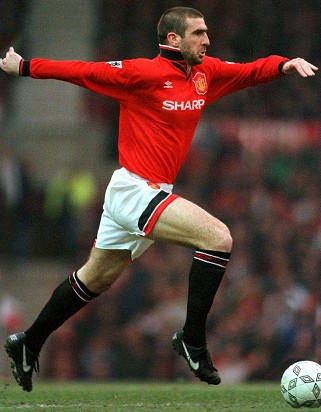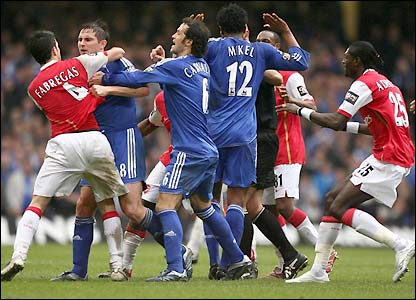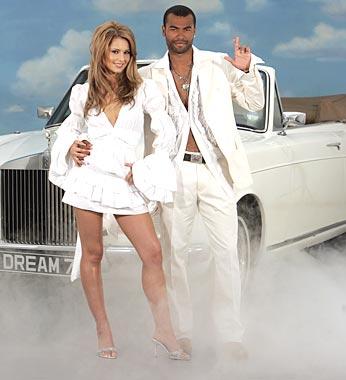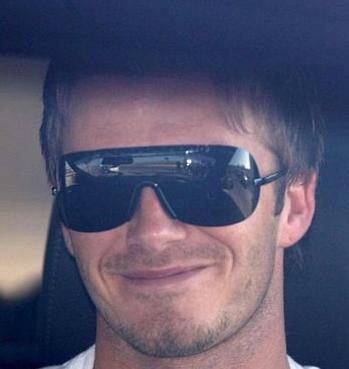IN PRAISE OF THE BREASTS OF THE GREAT JIMMY GREENHOFF
For me, it all comes down to Jimmy Greenhoff, and an April night in 1979. Wednesday April 4, to be precise, the place Stonnall, a little village 20 miles north of Birmingham.
I am one of two brothers standing near the rear window of our living room. It’s about 9pm; the curtains are drawn against what our mum calls ‘the cold winter’s night,’ even though outside, spring is doing its British best to be a bit better than winter. My elder brother stands at an angle, half looking at the far wall; he’s fifteen, and his hormones are making him feel like a lumbering center back. I’ve done a decade on the planet, and still have all the energy of a child for whom nothing has ever really gone wrong. I’m a nippy little winger.
We are listening to the radio, unable to really look at each other; the tension is too high. The transistor is tuned to BBC Radio 2, specifically, the soccer commentary. It’s an FA Cup semifinal replay, Liverpool vs. Manchester United; second half, still 0-0. The previous Saturday, United had traveled the 60 miles west to play Liverpool in the first semi-final, a game that had ended 2-2.
Let us pause and remember: These were the days before ubiquitous sports on every TV channel. The best you could hope for back then was Match of the Day on Saturday evenings on BBC1, a show which deigned to air brief highlights of two games played at 3pm that previous afternoon. If you were lucky, you supported a top team and might see highlights in midweek, too, on a show called Sportsnight. But wall-to-wall live soccer? If only.
At the time, Liverpool were the greatest club side in the world, having won what was then called the European Cup in 1977 and 1978 (they’d win again in 1981 and 1984). They were also top of the league in 1979, and about to win it yet again under the great, if walrus-like, Bill Paisley. (That was also the year Notts Forest won the European Cup, as they would do again a year later; English teams won the European Cup every year from 1977 to 1982, in fact, an astonishing run.)
The Liverpool team in those days boasted the likes of Kenny Dalglish, and Graeme Souness; a plethora of bad perms; and, let’s be honest, borderline-crap tactics, based all-too-regularly around what was called the ‘alehouse ball,’ in which some twat like Emlyn Hughes (a man who called his kids Emma, and Lynn lest we forget), or later Alan Hansen, pumped the ball long for a big center forward to nod down into the path of an onrushing Jimmy Case or Alan Kennedy.
Forget what you’ve been told – it was often awful to watch, but it won them a lot of stuff. At the time, by contrast, Manchester United were an even bigger club in terms of support; they still are; and they played exciting, if leaky-at-the-back attacking football. But since being the first English team to win the European Cup in 1968, a full nine years before Liverpool, they’d won very little else. In the early seventies, reeling from the loss of Busby and Charlton and Best, they’d even been relegated to Division Two (Chelsea would be similarly relegated in 1979). United had always preferred to lose 5-3 at home to West Brom than ever to actually win anything.
So here we were, two desperate brothers, in love with a team in the shadow of the Scousers. Sure, we’d had the joy of 1977, the Queen’s Silver Jubilee year, and United’s 2-1 win over Liverpool at Wembley in the cup final; but soccer joy doesn’t last nearly long enough, and by the end of the seventies neither of us could argue about Liverpool’s dominance. The memories of street parties for the Queen and the winning goal spinning off Jimmy Greenhoff’s chest – it was the strangest goal ever to win a major tournament – well, those memories were fast receding. 1979 was something else altogether – Thatcher coming to power; there’s no such thing as society, she said, and then she went about proving it by dismantling it. But at the age of 10 I didn’t care either way; I was all about United; and that night in April, I was about to love Jimmy Greenhoff all over again.
Dad wasn’t home. He worked for a roofing company, a company which always seemed to be on the verge of going out of business. That day he was driving back from Carlisle, where he’d spent all afternoon on a ladder trying to work out why a piece of cladding had been stuck to a roof upside down. The foreman had joked that his welder was from Australia, but on a wet Carlisle afternoon 100 feet up it hadn’t been all that funny. He was still two hours from home, and he’d have to listen to the United game in the car, without his sons. By the time he arrives in the Midlands, I could well be in bed; depends on what mood mom is in. At least he’d get to lie full length by the fire, next to his eldest boy, kick his shoes off, and take every shot with every United player, his feet jerking about every time the ball came ‘his’ way.
This 44-year old man had been born in Sale Moor, Manchester, four miles from Old Trafford. He was one of 14 kids. One of his elder brothers, Michael, was the sports editor of the Daily Express, and wrote a weekly column in the United Review, the match-day program; we knew Uncle Mike counted Busby as a friend, but he never boasted about it. One of the younger brothers in the family, John, was the head of the Nursing Union, and would come to prominence as a vociferous anti-Thatcherite in the 1980s. John was also the only one of the 14 who supported Manchester City. He went to a game at Old Trafford precisely once, which was of course the only day Michael ever wrote a piece in United Review about the black sheep brother who laughingly loved City.
Dad was the first of the Dempseys to move south, so we grew up in north Birmingham, a fact which plays into every fan’s prejudice that United supporters are from everywhere but Manchester. So when asked, I say I’m from there, because by blood I am, though I was the first grandchild who was not born close enough to hear ‘Glory, Glory, Man United’ wafting across the city every Saturday at 3. But blood? Mine runs red, and in any case, what would you have me be, a Villa fan?
I have kids of my own, now. They were born in New York City, in a hospital on 68th and York, in the year United won the ‘European Cup’ for the second time. The last time we won that tournament was the year I was born, ’68. In 1999, perhaps our best player was Dwight Yorke. York(e) and 68: I believe in omens. And given what happened in Barcelona that fateful night, the sheer unbelievability of it, one of my daughter boasts a legal middle name of Solskjaer (the other we middle-named Cantona). But it’s not just what happened in the Nou Camp; Ole had knocked Liverpool out of the cup that year, too, a last minute winner into the Stretford End; what else could I name my daughter? (And Cantona... well, if you can show me a better finish than his four-minutes-from-the-end FA Cup Final blast against the Scousers in 1996 – he hit the ball when it was thigh-high and behind him and 20 yards out – go right ahead.)
Her grandfather’s name was Vincent, but by the time United became a team that wins things, those seven letters were etched on a stone in the village of Stonnall. He died the year Gazza cried in Italy, and the last time Liverpool won the league. He took their luck with him, though he took a lot of other stuff, too.
That Wednesday night in 1979, with about fifteen minutes to go, me and my brother could barely stand it anymore, so we did what we always did – got ourselves a ping pong ball and had a kick about in the living room. But as we played, we heard the crowd noise rise, and stopping to listen we heard as Jimmy Greenhoff headed the ball into the back of the net to put United one up.
We made so much crazy noise I was put to bed. Dad and my brother watched the game without me later, though bro snuck up to tell me we were in the Cup Final again, third time in four years.
The first time, in 1976, had ended in heartbreak with heavily-unfancied Southampton beating us 1-0. Then there was the 1977 Liverpool final, and its three goals in five minutes. The first featured Stuart Pearson shaming Ray Clemence at the near post to put us one up, running away and pumping his fist very pleasingly, a celebration I copied for years afterwards. Two minutes later Jimmy Case leveled with a great effort from just inside the box. Then the crazy goal off of Greenhoff’s tits, attributed to Lou Macari still, and we had beaten Liverpool at Wembley; more, we had prevented them doing the Treble (League, Cup, and European Cup) – only one team has ever done that in England (see under 1999).
In 1979, having had Greenhoff knock Liverpool out that Wednesday night, we’d go to Wembley to face a strong Arsenal side, replete as it was with the great Liam Brady. We went two-nil down, had a crazy six minute spell late second half to draw level, then the phone rang, and my dad missed Alan Sunderland’s late, late winner. On the line was one of my dad’s workmates congratulating him for the comeback.
And that’s why I’ll always agree with Alan Sunderland who, when he scored that 89th minute winner in 1979, wheeled away celebrating and mouthing ‘you fucking bastard.’
Yes, Mr. Sunderland, you are. You are a fucking bastard indeed.
---
In soccer conversations in New York I’m most often asked by Americans why I don’t hate Arsenal and Chelsea as much as I hate Liverpool. After all, Liverpool are a spent force, at least domestically, concentrating instead on winning a few knock-out games each year in the hopes of a cup or two. Aren’t the two London clubs the real threat to United’s dominance? Well, the problem is, neither team was much of a threat to us growing up, Alan ‘fucking bastard’ Sunderland notwithstanding. We grew up being told that Liverpool were the greatest team that ever played, when in fact they were stolid and fairly boring to watch, and that’s one of the reasons we hated them.
Now, I actually love to watch Arsenal play. Against Milan in Italy recently they were astonishing, knocking the ball around like kids in a living room with a ping pong ball and a fast-approaching bedtime. Chelsea, of course, will go back to mid-table once the Russian money goes away – until then, they’ll buy loads of superstars, have no real team, and win the odd thing here and there without any United fans really caring either way. No, it’s Liverpool we continue to hate – we delighted in winning 1-0 at their place around Christmas last year, and getting the chance to sing,
Feed the Scousers / Let them know it’s Christmas time
We laugh our asses off when we bring to mind West Ham fans a few years ago singing, to the tune of “Donna e mobile,”
We’ve got Di Canio / You’ve got our stereo.
We love that in the last twenty years, apart from a bizarre night in Istanbul when AC Milan forgot to come out for the second half and handed Liverpool the 2005 Champions League, they’ve basically won squat. My loathing of them is only deepened now that I understand that the Liverpool I grew up watching were actually winning things for one reason only: the back pass. They thrived on solid ‘defensive units’ who spent 75 minutes of every game knocking it back to the keeper. Can’t do that anymore, and ever since backpasses were done away with in 1992, United has won the league nine times, including that first year of the new rule. No back pass, and this is what you get: Liverpool has come third five times and second once – that’s it. This year, who knows – they could end fourth, but then again they could end sixth.
But the animosity is more than just about soccer.
For a start, there’s the Manchester ship canal, that cunning cut Mancs built to siphon off some of the business Liverpool got from the roiling Atlantic. But it wasn’t just shipping that drove a wedge between the two towns; to my eye, the cities have different emotional registers.
Manchester gave the world ‘What Difference Does it Make?’ and New Order and Joy Division (or, Warsaw, as they were originally called); dark, knowing music that was both witty and clear-eyed. Liverpool, on the other hand, gave the world Paul McCartney and Wings singing ‘Who’s That Knocking at the Door, Who’s That Ringing the Bell?’ His earlier combo, the name of which escapes me, were the greatest band ever, blah blah blah, but they were also horribly maudlin and sentimental more often than people realize (go read the words to ‘Let it Be’ then get back to me).
Manchester is always thought of as a bit rougher, a bit more real, a place with a bit more edge. Consider the soccer fans: Liverpool’s ‘You’ll never walk alone’ is so saccharin as to be pretty much unbearable; United fans, in contrast, sing
Park, Park, wherever you may be
You eat dogs in your own country
But it could be worse you could be a fuckin’ Scouse
Eatin’ rats in your council house.
That’s a song in honor of the Korean Park, who plays for United – utterly bizarre as an encomium, but there it is. Compare, too, the recent minutes’ silence at Old Trafford to honor the lost lives in the Munich air crash, a silence which was perfectly observed inside the ground. Anyone who knows Manchester is hardly surprised. It’s a tough but fair place; the city comes first; you might hate United, but unlike Liverpool fans you don’t make fun of Mancunians who died in a plane crash. The only blot on that silence was the firecrackers let off outside the ground, and United and City fans alike don’t believe it was City fans who did it. It had to be Scousers. They probably thought it was funny.
No, what was funny was Barnsley. I can imagine a conversation in June 2008 between two Man United fans; goes something like this:
MU fan #1: What’s your best moment of the season?
MU fan #2: That’s a very tough one. We were fucking brilliant this year. I’m going to say, Rooney’s overhead kick that hit the bar in the Champions League final....
MU fan #1: Good one! It helps, of course, that Ronaldo smashed in the rebound off of Nani’s tiny cock....
MU fan #2: Of course. But an overhead kick? We’ll tell our grandkids.... So what’s your moment?
MU fan #1: You’re going to laugh, but it was Brian Howard.
MU fan #2: Really?
MU fan #1: Seriously, last kick of the game, in front of the teary-eyed Kop – they’re always crying about something those lot – and there he goes, burying it to knock the Scousers out of the cup. Not to mention he should have had a penalty seconds before. Perfect. And don’t forget they were 2-1 down right before halftime to Havant and Waterlooville in the previous round....
So it goes; as much as we love United, we also loathe, and fortunately can now laugh at, Liverpool. This was to be the season they won the league of course, but that’s because no one noticed they’re not that good at the back, rely too much on an overrated Steven Gerrard, and put Dirk Kuyt in the team most weeks. Torres is sometimes unstoppable, especially against poor teams, but against United at Anfield he didn’t show up; same story at home to Arsenal, even if he claims he was injured. But even United fans felt a bit sorry for staunch Anfieldites at the start of the season: in their first five games, they beat Derby 6-0 (well, duh), and drew every other game. Must have been like watching paint dry.
Being smart fans, they must have known that by the time Fabregas equalized with 10 minutes to go in that sixth home game, the domestic season was over. You can’t take 7 points at home from five and win the league, even if you’ve already played Chelsea and Arsenal. Further, Chelsea, Arsenal, and United each went to Anfield and got a result. All that was left was Brian Howard and the Champions League final.
Because who knows, they’ll probably make it again. My brother has a phrase for all those little teams that show up at Old Trafford and play their hearts out, only to lose at home the following week to someone crap – he says they’re ‘cheating their fans.’ I hereby accuse this current Liverpool team of doing the same. Last week against Inter in Milan they looked brilliant; the week before against Barnsley they looked like Liverpool from the last two decades. But all those Scousers who can’t afford to travel to Italy must be pissed that they play so poorly in England, only to turn it on for the latter stages of the Champions League.
Even though we loathe them, they are true and dedicated fans of their team, and trust me, if United only cared about Europe, there would be hell to pay in Sale and Stretford and all along the Warwick Road. (That said, United fans love Benitez, and we urge you to keep him as long as you can. Fat Spanish waiter, he’s just a fat, Spanish waiter.)
And yet, and yet, of all the games I long to attend, United home to Liverpool in the league is the one. Recent years in the Premiership have been aces if you’re a United fan.
Last year at Anfield we had Scholes sent off, yet up popped John O’Pie, as United fans unaffectionately call him, to smash home a late winner into the Kop end, and thereby pretty much win us the league. This year we nicked the corresponding fixture with a clever Tevez winner right before half time, and next Sunday comes the visit of Liverpool to Old Trafford. My brother being the proud owner of a bunch of season tickets at Old Trafford I’m making the trip, and I’m taking my kids.
So next weekend I’ll be there, with my little Solskjaer and my little Cantona in tow.
It’s their first visit to Old Trafford; I was about their age when I went to see United for the first time too. That day, the accelerator cable on my dad’s car snapped on the northbound M6 and, stuck in 4th gear, he somehow managed to cruise down the off ramp, do a Starsky and Hutch left turn, drop the car at a garage, and get us to the game via a Manchester bus with minutes to spare. I still remember the blissful shock of the green Old Trafford turf as we finally made it to our seats. We beat Birmingham City 1-0 on a Joe Jordan header, and the car was fixed by 5.
Some things never leave you. Brian Howard in front of the Kop. Jimmy Greenhoff’s stooping header in April 1979, the winner off his tits two years earlier. The first time I heard ‘William, It Was Really Nothing.’ Ole Gunnar Solskjaer’s goal in Barcelona.
My dad’s face as the light at the bottom of the off ramp turned amber. ‘Hold on, boys,’ he said, ‘this one’s gonna be fun.’

































